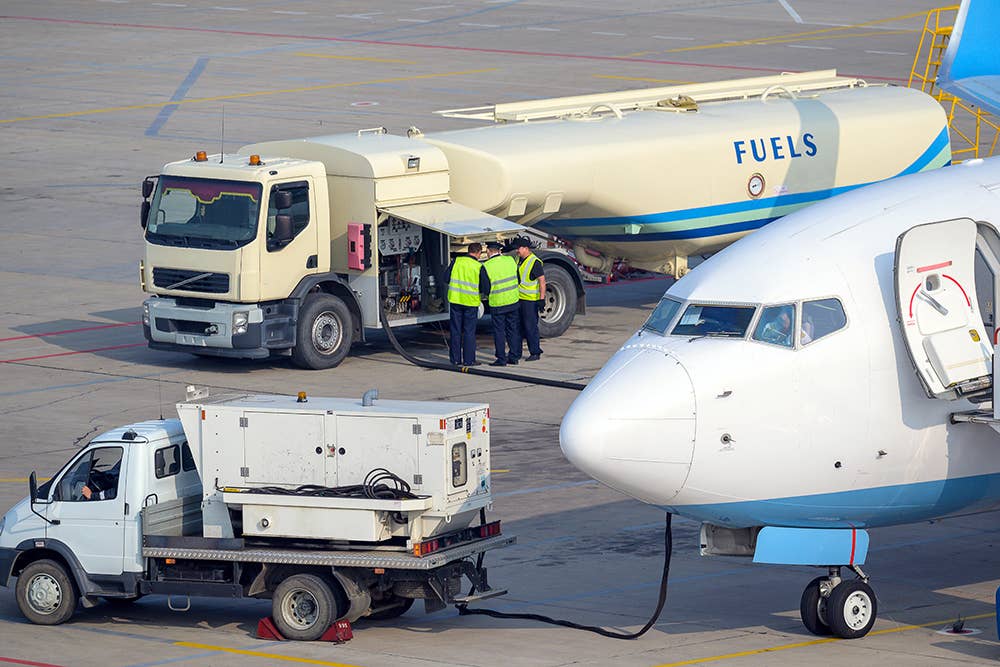FAA Grants $1.4 Million to Build Sustainable Aviation Fuel Supply Chains
Five of the nation’s top research universities were selected to analyze regional feedstock and understand environmental impacts of SAF production.

A total of 13 schools across the U.S. are doing research tied to establishing a sustainable aviation fuel production line. Credit: Adobe Stock
The FAA is granting more than $1.4 million to universities to research and build sustainable aviation fuel (SAF) supply chains in different regions across the United States.
The funding is part of ASCENT, the FAA’s Center of Excellence for Alternative Jet Fuels and Environment’s initiative, started in 2014 to meet environmental and energy goals by producing sustainable aviation fuels at a commercial scale through science based solutions. So far, the FAA has invested $13 million into the project.
“Sustainable aviation fuels are a critical part of meeting our climate goals for aviation, and we want to help that industry grow and create jobs right here in the U.S.,” said U.S. Transportation Secretary Pete Buttigieg.
“These funds will help build regional supply chains so that communities across our country— many of them rural—feel the economic benefits of producing sustainable aviation fuel.”
University Research
Each selected university will concentrate on specific research targeted to their regions feedstock. The goal is for the research teams to identify which can be used to produce SAF. They also want to tap into the existing regions infrastructure to create a dependable supply within reach of airport demand.
The new investment from the FAA adds to the Biden administration’s announcement this September of the Sustainable Aviation Fuels Grand Challenge, a government-wide initiative designed to catalyze the production of at least three billion gallons per year by 2030.
Research Teams
Washington State University, $412,000 (In collaboration with U.S. Department of Agriculture): The region is rich in:
- Existing pulp and paper mills
- Sugarcane mills
- Dry corn ethanol plants
- Petroleum refineries
The team will utilize existing plants and research the possibilities of retrofitting them to enable for jet fuel production from forest harvest, waste materials, and other crops.
Massachusetts Institute of Technology, $450,000: This team will:
- Calculate the lifecycle greenhouse gas emissions benefits from the use of SAF
- Evaluate fuel production costs for SAF
- Examine production potential for SAF
University of Tennessee, $100,000: This school’s team will use the woody biomass in the Central Appalachian region to support the production of sustainable aviation fuels and examine the potential production of SAF from lipids on a national basis, including the use of cover crops that are grown across the United States.
University of Hawaii, $100,000: This team will develop a model for tropical oil supply chains and assess gasification systems to produce fuel and/or hydrogen from construction and demolition landfill waste. It will also evaluate the use of urban wood waste from construction and demolition as a reliable, low-cost source of renewable material for the production of bSAF.
Purdue University, $350,000: This school’s group will research the impact that sustainable aviation fuel production may have on greenhouse gas emissions.
These five universities add to the list of 13 schools across the U.S. that are undertaking research that is critical to establishing a sustainable aviation fuel production line.

Subscribe to Our Newsletter
Get the latest FLYING stories delivered directly to your inbox






